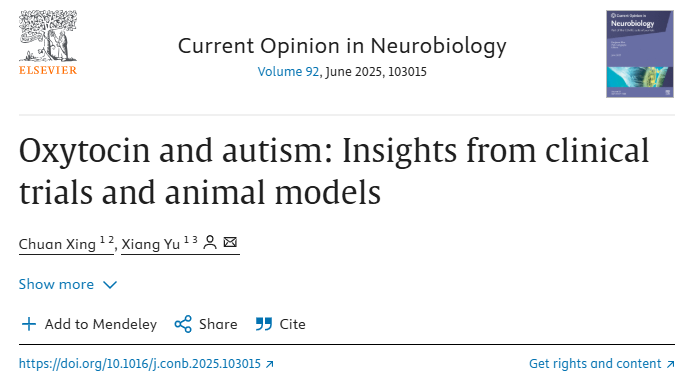Prof.Xiang Yu: Oxytocin and autism: Insights from clinical trials and animal models

Abstract
Autism spectrum disorder is a highly heritable and heterogeneous neurodevelopmental disorder, characterized by impaired social interactions and repetitive behaviors. Despite its complex etiology, increasing evidence has linked autism to the oxytocin system. The oxytocin peptide has long been known as the “social hormone,” and has been shown to increase attention to social cues, elevate salience of socially relevant stimuli, and increase learning and reward in social situations. Reduced oxytocin levels and mutations in the oxytocin system have been reported in autism patients, while exogenously delivered oxytocin has been shown to alleviate social interaction deficits in both patients and animal models. Here, we summarize the results of recent clinical trials using oxytocin nasal spray to treat individuals with autism, as well as studies of autism animal models with oxytocin system deficits, and the rescue of their social behavior deficits by oxytocin. Finally, we discuss factors influencing clinical outcomes and reflect on future directions.
Original Link:https://doi.org/10.1016/j.conb.2025.103015